|
A recent podcast featuring Prof. Eugene Volokh, Senior Legal Advisor to Protect The 1st, looks at restraining orders and their potential for overbreadth – particularly when they deal with speech (and not conduct) in the digital age.
Volokh joined the California Appellate Podcast with Tim Kowal and Jeff Lewis on December 19 to tackle the issue, about which the professor has written extensively. As Volokh points out, criminal harassment and restraining order laws are gradually undergoing a curious evolution: where once they largely (and constitutionally) restricted unwanted speech to a particular person, now many orders restrict speech about a particular person. It’s the latter category of orders that implicate the First Amendment and could potentially constitute unlawful prior restraints. Volokh discusses this issue at length in the podcast, though it is perhaps best summarized by a hypothetical he posits in a 2022 article he wrote for the Harvard Journal of Law and Public Policy: “Donna is publicly criticizing Paul. So Paul sues her, and gets an injunction such as this: ‘[Defendant] is permanently enjoined from publishing… any statements whatsoever with regard to the plaintiff.’ “It’s hard to reconcile such an injunction (whether entered in a libel case or as a ‘personal protective order’) with First Amendment precedents. The injunction isn’t limited to speech within a First Amendment exception, such as libel or true threats. It is far from ‘narrowly tailored,’ which is often set forth as a requirement for the rare content-based anti-speech injunctions that are permitted.” Even so, as of last year Volokh had found over 200 such injunctions – many involving cyberstalking and other online conduct, a particularly murky area with outsized potential to implicate protected speech. As Volokh points out, this trend threatens the imposition of liability not just on criminal libel and falsehoods but also, potentially, on true statements and opinions. One such case is Chan v. Ellis, in which poet Linda Ellis sued website author Matthew Chan for criticizing Ellis’ copyright enforcement practices. There, the Supreme Court of Georgia reversed a lower court ruling ordering Chan to delete “all posts relating to Ms. Ellis” from his website, finding that the posts were not sufficiently directed to Ellis. Rather, they were merely opinion-based assessments about her. The California Appellate Podcast is, in large part, oriented around practical advice for practicing attorneys on issues of public importance. Here, the hosts urge lawyers to look closely at restraining orders for the “to/about” dichotomy. We’d second that and recommend the podcast to anyone interested in how judicial reactions to changing technologies can result in First Amendment backslides. They say, “misery acquaints a man with strange bedfellows,” and to most followers of the national discourse, no pair of institutions could make for an odder couple than the National Rifle Association and the American Civil Liberties Union. Yet in keeping with its principles, the ACLU has decided to represent the NRA before the Supreme Court, and it’s causing some consternation within the group.
The ACLU of Texas announced on December 15 that it would not join with its national organization in siding with the NRA’s suit against New York’s Department of Financial Services. They join the New York Civil Liberties Union, who said in a statement: "The NRA is among the most powerful advocacy organizations in the country, with resources to secure the nation’s finest lawyers. It does not need the ACLU to volunteer for that job." The case, National Rifle Association v. Vullo, asks whether former New York State Department of Financial Services Superintendent Maria Vullo violated the First Amendment by encouraging banks and insurance companies to stop doing business with the NRA following the 2018 Parkland, Florida high school shooting. The U.S. Court of Appeals for the Second Circuit ruled against the NRA, arguing that “government officials have a right — indeed, a duty — to address issues of public concern.” The NRA, which is also represented by Brewer Attorneys and Counselors as well as constitutional scholar and Protect the First Senior Advisor Eugene Volokh, believes the case was erroneously decided. In their certiorari petition, they write: “The Second Circuit’s opinion below gives state officials free rein to financially blacklist their political opponents – from gun-rights groups to abortion-rights groups, to environmentalist groups, and beyond. It lets state officials ‘threaten[] regulated institutions with costly investigations, increased regulatory scrutiny and penalties should they fail to discontinue their arrangements with’ a controversial speaker, on the ground that disfavored political speech poses a regulable ‘reputational risk.’ … It also permits selective investigations and penalties targeting business arrangements with disfavored speakers, even where the regulator premises its hostility explicitly on an entity’s political speech and treats leniently, or exempts, identical transactions with customers who lack controversial views.” For their part, the ACLU has made clear that they disagree with the NRA’s overarching policy goals. In a statement, they said: “The ACLU does not support the NRA or its mission. We signed on as co-counsel because public officials shouldn’t be allowed to abuse the powers of the office to blacklist an organization just because they oppose an organization’s political views.” We could not agree more, and the NRA makes a compelling argument that Vullo overstepped her bounds. In fact, the Supreme Court has already ruled in Bantam Books v. Sullivan from 1963 that the government violates fundamental First Amendment rights when it targets an organization through “informal sanctions,” including “coercion, persuasion and intimidation.” We applaud the ACLU for standing up for what’s right, even – and especially – when it’s hard to do so. We look forward to further developments in this case. A federal judge in Texas has upheld the state’s TikTok ban on devices used for government business. It’s the right ruling – a correct response to a precise law which undergirds the state’s legitimate interest in prohibiting the use of a potentially harmful social media app in official settings.
TikTok is a Chinese company with user data stored on servers in the PRC. It holds inordinate sway over young people in the US, with 67% of teens using the platform with some regularity, according to Pew. Yet, there is now credible public evidence that China’s officials enjoy open access to personal data on the platform, using it to spy on pro-democracy protestors. An employee of ByteDance, the corporate owner of TikTok, has made that claim. The Coalition for Independent Technology Research filed the lawsuit in July, arguing that the Texas ban compromises academic freedom. One teacher from the University of North Texas even suggested that they cannot sufficiently assign work without use of the app. Texas’ law specifically disallows the use of TikTok on state-owned, official devices. That’s in contrast to Montana’s outright ban on the app – for everyone. There, U.S. District Judge Molloy asserted that Montana’s law infringed on free speech rights and exceeded the bounds of state authority. He was right, too, and it was a significant affirmation of the importance of safeguarding fundamental rights in the digital age, particularly within the context of online platforms that serve as crucial arenas for expression. This court split exemplifies the balance we must strike between protecting user freedoms and enabling a safe digital environment without compromising free expression. States have every right to prohibit use of a foreign-controlled app on government owned phones. At the same time, blanket banning of TikTok is neither a constitutional nor reasonable response. Americans can speak freely and freely associate, even if they are unaware of the implications in doing so. State officials and employees, by contrast, are subject to different rules. But they are welcome to use TikTok on their personal phones. As Judge Robert L. Pitman correctly asserts, state universities constitute a “non-public” forum – the touchstone of which is whether “[restrictions] are reasonable in light of the purpose which the forum at issue serves.” Here, “Texas is providing a restriction on state-owned and -managed devices, which constitute property under Texas’s governmental control….” It is both viewpoint neutral and reasonable – which is all that is needed in such cases. Whether TikTok itself is viewpoint neutral is a question for another day. The Freedom of the Press Foundation reports a disturbing trend at the county and municipal levels: governments pulling official notices from local papers in retaliation for unfavorable reporting.
In Delaware County, New York, the board of supervisors dropped local newspaper The Reporter as the official county paper for printing local laws and notices in 2022, citing increased prices for advertising. A year later, however, the board wrote a letter to The Reporter’s publishers to complain about its coverage, specifically stating the true reason for the county’s decision: displeasure over certain elements of the paper’s reporting. The New York Times picked up the story. Days later, the Delaware County Attorney issued a gag order on all county employees prohibiting them from speaking to The Reporter at all. Now, the paper is suing, alleging First and Fourteenth Amendment violations. In addition to police raids of newsrooms and arrests of journalists by local governments, the defunding movement is gaining steam against already financially stressed local newspapers across the country. In Putnam County, New York, the local government terminated The Putnam County News and Recorder’s contract to publish county legal notices following supposedly critical coverage of the newly elected county executive. As in Delaware County, it seemed a blatant attempt to use the power of the purse strings to manipulate local media. Similarly, in Kansas, the attorney general issued an advisory opinion suggesting that local governments could exempt themselves from a state law requiring official notices to be published in a designated newspaper. Since then, the cities of Hillsboro and Westmoreland have done exactly that, creating heightened concerns about a lack of government transparency in the process. In Ohio, the state passed a little noticed new law in its 6,000-page budget permitting cities and towns to publish notices on their official websites rather than in local papers. (A similar action also took place in Florida.) There are benign explanations for this move. But these new standards give local governments new ammunition to employ against newspapers in an effort to control the narrative. It’s a storied tradition for municipalities to post public notices in newspapers (in fact, most cities and towns have laws requiring them to do so). The purpose is to keep residents and voters informed of official government actions – local meetings, land sales, zoning changes, and the like. And while failing to uphold this practice does not violate the Constitution, government retaliation against newspapers based on their reporting certainly does. Gagging county employees willing to speak on matters of public concern, moreover, violates both the newspapers’ First Amendment rights and those of the prospective speakers and whistle-blowers. We applaud the Freedom of the Press Foundation’s efforts to support local papers and fight back against officials more concerned with consolidating power than protecting speech. PruneYard Shopping: Are the Speech Rights of Shopping Centers Really Like Those of Social Media?12/19/2023
The Cato Institute’s recent amicus brief making the case that social media laws passed by the states of Texas and Florida are unconstitutional also takes aim at a precedent from 1980, PruneYard Shopping Center v. Robins. Cato’s brief raises the question: Does it make sense to analogize the speech rights of those who own a physical property with those who own a social media company?
In PruneYard, the U.S. Supreme Court held that the California Constitution protected reasonably exercised speech on the privately owned PruneYard shopping center against the owner’s wishes. The Court noted the California Constitution has broader protections for speech than the Bill of Rights. The Court correctly reasoned that states can have greater and positive protections for speech than the negatively defined rights of the First Amendment, which forbids government censorship and curtailments of speech rights. Based on this singular insight, the Court’s opinion established that the shopping center could not prevent outsiders from protesting or soliciting for political purposes on its private property. In its brief, Cato argues that the Supreme Court should at the proper time address this odd ruling and hold that forcing private property owners to accommodate on their premises speech they do not support is a violation of the property owners’ First Amendment rights. Cato also argues that social media platforms should similarly be protected from being forced to carry the speech of others. While Protect The 1st agrees with Cato that the Texas and Florida laws are unconstitutional, the analogy to PruneYard is flawed. Cato’s comparison with real property, however, remains useful, offering an illuminating look at what is unique about social media. As Protect The 1st previously reported, the Florida law would prohibit social media platforms from removing the posts of political candidates, while the Texas law would bar companies from removing posts based on a poster’s political ideology. The former law was struck down by the Eleventh Circuit, while the latter was upheld by the Fifth Circuit. Both cases are now headed to what promises to be a landmark digital speech review by the Supreme Court. But is the extension of the critiques of the PruneYard applicable to social media? This seems inapt because property owners who allow outsiders to mount politically-charged events on their premises might face liability for that speech, just as newspapers can be sued for speech contained in letters-to-the-editor. Social media is different. Section 230 of the Communications Decency Act is a government grant of immunity to social media platforms for third-party speech, while allowing some discretion for the platforms to moderate content. Despite frustrations over actual content management by social media companies, and government involvement in it, Section 230 has allowed a thriving online world to develop – along, of course, with all the attendant psychic garbage. This is utterly unlike shopping centers, which don’t enjoy any such government immunity and could be held legally accountable for the speech that occurs on their property. The two state laws have obvious First Amendment flaws and striking them down doesn’t require revising precedents. The authors of the Texas and Florida laws, concerned about the manipulation of the online debate, would further intrude government meddling into social media content moderation. This power would likely extend far beyond what these politicians imagine (and perhaps even to their specific detriment). We suggest the Supreme Court take a more straightforward analysis of the Florida and Texas laws as it invalidates them under the First Amendment. That the performance of three Ivy League presidents before a congressional hearing last week was disastrous doesn’t need context – any version of academic freedom that tolerates a call for the genocide of Jews or any other group is well beyond any proper understanding of that concept. It would transform universities into arenas of fear.
This debacle continues to spark a long-needed reassessment of the correct balance in protecting speech on campus against the need to protect students with laws and court rulings that forbid “true threats.” Eugene Volokh, UCLA School of Law professor and Senior Legal Advisor to Protect The 1st, explores this territory in a thoughtful essay for The Los Angeles Times. He urges university presidents to do all they can to protect students from true threats without abandoning free speech standards. "Antisemitism on campus is a real problem, and in this fraught moment, many Jewish students are understandably scared. But if freedom of expression is to survive on American campuses — and for our nation’s vitality, it must — Magill’s original answer was right. Context does matter. The categorical exceptions to the 1st Amendment are few, narrow and carefully defined by precedent. And while Penn is a private university not bound by the 1st Amendment, its policies commit the school to 1st Amendment standards." Volokh finds considerable context for utterances or writings that are interpreted as calls for genocide for some, and merely an explication of just-war theory by others. Between these two polarities, however, many thorny questions present themselves. For example, is the call for a “global intifada” a true threat or a political statement? What matters most: what the speaker means or how it is heard by others? Beyond the university, has the jurisprudence of true threats and incitement kept up with the internet age? Shouting “Kill the Jews” in an empty park is one thing. Promoting such a message with a vivid post that reaches millions of people – potentially inspiring the most unbalanced mind among them to take up a gun and attack a synagogue – is another. Protect The 1st looks forward to examining these questions and holding debates on “true threat” exceptions to speech throughout 2024. Colorado and the Catholic Church are locked in a struggle over whether the state’s universal preschool program should include religious schools that impart religious instruction.
It began in 2022, when Colorado's Department of Early Childhood launched a program offering 15 hours of free education per week to all preschoolers at a private or public school chosen by their parents, aiming to provide universal preschool access before kindergarten. According to the Becket law firm, the department then imposed restrictions categorically forbidding all Archdiocesan Catholic preschools from participating – excluding over 1,500 kids at 36 preschools. It seems as if universal isn’t so universal after all. The Catholic schools’ federal lawsuit against the State of Colorado aims to protect the right of families who send their children to Catholic schools to participate in that state’s universal preschool program. The lawsuit filed by St. Mary’s and St. Bernadette’s parishes, brought by the Becket Fund for Religious Liberty, would ensure their preschools had access to state funding, seeking to challenge the Colorado Department of Early Childhood’s decision. Such schools fulfill a vital charitable role within their communities. Many of the families they serve are of limited means. Twenty percent of families who send their children to preschools in the Archdiocese qualify for the free and reduced-price school meals program. At St. Bernadette’s, that number is 85 percent. At St. Mary’s over a quarter of families also receive scholarships or discounts on their preschool education. That Colorado would knowingly deprive impoverished schools and families of critical resources simply because of their religion is unconscionable – and also unconstitutional. The Supreme Court has three times in the past six years affirmed that the government cannot exclude some people from public benefits because of their religious beliefs or the free exercise of their religion. Families of any religion – or no religion – ought to have the freedom to raise their children in accordance with their values without losing out. In late October, U.S. District Court Judge Daniel D. Domenico granted a Christian school in Buena Vista, Colorado, a preliminary injunction, allowing the school to remain in the universal pre-K program and receive state funding while their case proceeds. Judge Domenico wrote that the state forces the school “into the unconstitutional choice of abandoning religiously motivated practices or foregoing otherwise available public funding … Exclusion of a preschool is inherently anti-universal, and denying participation based on one’s protected beliefs or speech is not equitable.” PT1st looks forward to further developments in this case. “The First Amendment guarantees the public a qualified right of access to judicial proceedings and documents that is rooted in the understanding that public oversight of the judicial system is essential to the proper functioning of that system and, more generally, to our democratic system of self-governance.”
A hearing last week before the Fourth Circuit Court of Appeals includes this quote from an amici brief by the Reporters Committee for Freedom of the Press and 38 other media organizations including the Associated Press, Atlantic Monthly Group, Axios, McClatchy, the National Press Club, the New York Times and The Washington Post. At issue is Virginia’s Officer of the Court Remote Access (with the charming acronym of OCRA) system, which allows attorneys and certain government agencies online access to non-confidential civil court records from participating circuit courts in the state (105 courts out of 120 in the Commonwealth). Those not allowed online access to court records through OCRA include, well, everyone else – but most notably members of the press, who are forced to travel to each circuit court individually, in person, during weekday business hours in order to obtain documents and properly report on proceedings of public concern. Virginia’s practice stands in contrast with the policies of at least 38 other states that allow unfettered online access to court records for all members of the public. Accordingly, one media outlet, Courthouse News Service, filed a complaint in the U.S. District Court for the Eastern District of Virginia against a Virginia court clerk and the administrator of OCRA, alleging that the “Non-Attorney Access Restriction” constitutes an unconstitutional speaker-based restriction on speech. Although the district court initially rejected the defendants’ motion to dismiss, it ultimately granted summary judgment, finding that the attorneys-only rule was a content-neutral time, place, and manner restriction and thus did not require a strict scrutiny analysis. Courthouse News subsequently appealed to the Fourth Circuit. The defendants argue that limiting online access to lawyers and certain government agencies allows the courts to better prevent against fraud and misuse of “private, sensitive information let out into the world and limiting the potential for widespread data harvesting which is often done by bots.” On its surface, this seems a noble argument, but it fails to consider that: 1) the information online is already non-confidential in nature, with any sensitive information required to be redacted by filers of the documents; 2) any member of the public can already access these documents in person; and 3) openness has worked well for the 38 other states that have functional, non-compromised online systems in place that allow widespread public access. Protect The 1st is particularly sensitive to the protection of online data – but, as the amici point out, Virginia’s argument is speculative at best, showing no evidence of data harvesting by bots or anyone else. Restricting access to OCRA based on assumptions about how certain non-favored speakers may use that information is plainly not content-neutral. Instead, as amici contend, it “amounts to unconstitutional speaker-based discrimination that demands strict scrutiny.” Further, as other courts show, less restrictive means of protecting information in court documents obviously exist – certainly less restrictive than denying access to public documents. Most importantly, fundamental press freedoms are at stake here. “…[I]n denying the press and the greater public access to OCRA,” amici write, “the Non-Attorney Access Restriction infringes the public’s presumptive constitutional right of contemporaneous access to civil court records.” Journalists depend on remote, online access to report on cases of public concern in a timely manner. “If not reversed,” the brief declares, “the District Court’s order will hamper the ability of the news media to report on court proceedings of public interest in Virginia and around the country.” Courthouse News Service, the Reporters Committee for Freedom of the Press and their fellow amici are right in urging the Fourth Circuit to overturn the lower court’s grant of summary judgment in this case. We’ll be following future developments closely. It’s fashionable to say, “I’m intolerant of intolerance.” This refrain can justify all manner of censorship. If any undesirable opinion can be plausibly cast as “intolerant,” then nearly any action to stifle that speech (instead of refuting it) is not only justified but desirable. We see this logic play out in American colleges and universities, where sprawling bureaucracies routinely try to micromanage speech, as well as in efforts to manage the culture by both blue and red state legislators.
It’s no surprise, then, that younger Americans believe it is more important to feel welcome and safe, especially online, than it is to be able to speak their minds freely. Many no longer believe the freedom of speech covers offensive speech. To see what this looks like in action, we only need to turn to the example of the United Kingdom, which enacted a censorship regime only to reverse course. In 1986, the UK passed the Public Order Act. Section 5 of the act made it a statutory offense to use threatening, abusive, or insulting words or behavior, or to display any writing, sign, or other visible representation which is threatening, abusive, or insulting, within the hearing or sight of a person who is likely to feel harassed, alarmed, or distressed as a result. Got that? In effect, it became illegal to offend someone in the UK. Countless citizens were brought to court, many found guilty, because they made some pillock feel barmy or gormless. There was sufficient British commitment to the principles of democracy to spur a countermovement. At the launch event for a campaign to reform Section 5 in 2012, Mr. Bean actor Rowan Atkinson joined the fray, giving a rousing speech and a call to action. He called the right to express oneself freely the “most precious thing in life,” second only to food in your mouth. Atkinson has never been arrested for insulting someone, but he attributes that to his fame, which protects him from charges which might befall the less famous. Atkinson spotlighted three particularly ludicrous cases: one in which a man was arrested for insulting a police horse, another in which a teenager was arrested for calling the Church of Scientology a cult, and a third in which a cafe owner was arrested for displaying passages from the Bible on a TV screen. The first two cases were only dropped once they had gained public notoriety, and the police were worried about being publicly embarrassed. In the process, people were arrested, questioned, and taken to court – three things which are themselves enough to chill speech, even if the case is ultimately dropped. Atkinson sums up the problem with the law nicely: “The clear problem with the outlawing of insult is that too many things can be interpreted as such … merely stating an alternative point of view to the orthodoxy can be interpreted as an insult.” Rather than censorship, what should be done instead? Atkinson says: “More speech …The strongest weapon against hateful speech is not repression, it is more speech.” The campaign to amend Section 5 was ultimately successful. Reforms passed in 2013 dropped language that outlawed insulting speech. The UK’s trial and error with outlawing offensive speech should be an enduring warning to those in the United States who want to enact similar restrictions. U.S. District Judge Donald Molloy recently blocked Montana's ban of the Chinese-owned social media platform TikTok, standing up for free speech but leaving a host of issues for policymakers to resolve. Montana’s ban, which was slated to take effect at the beginning of 2024, made it the first U.S. state to take such a measure against the popular video sharing app.
Judge Molloy asserted that Montana’s law infringed on free speech rights and exceeded the bounds of state authority. This decision is a significant affirmation of the importance of safeguarding fundamental rights in the digital age, particularly within the context of online platforms that serve as crucial arenas for expression. While celebrating this victory for free speech, it remains essential to acknowledge legitimate concerns over national security and data privacy regarding social media platforms answerable to a malevolent foreign government. TikTok's ownership by China's ByteDance raises pertinent questions about safeguarding user data and its potential exploitation by foreign entities. So worrying were the reports that the FBI opened an investigation into ByteDance in March. The need for robust measures to protect against data scraping, digital surveillance, and misuse of personal information is a valid concern. This case prompts reflection on the broader social welfare implications of platform regulation. TikTok's substantial user base, particularly youth, holds significant sway over American culture. Striking a balance between protecting user freedoms and privacy enables a safer digital environment without compromising free expression. Even storing Americans’ data in the United States might not be enough to lessen the danger that the regime in Beijing might override any firewalls. A better solution could be to incentivize China's ByteDance to divest TikTok's ownership to American ownership. This move would alleviate worries about data security by placing the platform under the oversight and governance of a company within the United States, subject to American laws and regulations. Ultimately, Judge Molloy's ruling upholds the sanctity of free speech in the digital realm. It should fuel constructive dialogues on the complex challenges to the United States posed by TikTok, particularly to the tension between individual liberties, national security imperatives in the face of a hostile regime, and the responsibility of digital platforms. Finding a delicate equilibrium among these facets remains an ongoing challenge that requires creative solutions, not restrictions on speech. Settlement Spurs Civics Lesson for Law Enforcement Last month, Los Angeles County reached a $700,000 settlement agreement with a radio journalist who was accosted and arrested by police while attempting to document law enforcement’s response to a local protest. It’s a significant sum that will deter future government hostility against reporters who are simply doing their jobs.
Most critical of all, the settlement includes new training requirements for law enforcement personnel about the media and the First Amendment, as well as policies and laws governing interactions with the press. We wrote recently about a series of similar incidents across the country in which government officials have misused their authority to punish journalists. This includes an FBI raid of a Florida journalist’s home, a retaliatory raid in Kansas preceding an elderly publisher’s death, and the arrest of a publisher in Alabama for lawfully reporting on leaks from a grand jury about the mishandling of COVID funds. Even in Washington, D.C., the media is not immune from such abuses. Consider the case of CBS News Correspondent Catherine Herridge, who was ordered by a U.S. district court judge to reveal the identity of confidential sources she used for a series of 2017 stories. She has, laudably, refused to do so, risking imprisonment in the process. In Herridge’s case – and in many other similar cases – the passage of the Protect Reporters from Exploitive State Spying (PRESS) Act would be a major step in the right direction, limiting the ability of prosecutors to expose the sources and notes of journalists in federal court. More fundamentally, however, what we need most is better education and constitutional literacy. That’s why the recent events in Los Angeles County are so important. In that case, LAist journalist Josie Huang briefly filmed sheriff’s deputies arresting a protester when she was ordered to “back up.” Before Huang could respond, she was brutally slammed to the ground and subsequently taken to jail and charged with obstructing a peace officer. Outcry was swift, with the Reporters Committee for Freedom of the Press and 65 other media organizations quickly mobilizing to demand that charges against Huang be dropped. The district attorney’s office, likely recognizing the unconstitutional actions of the sheriff’s deputies, declined to prosecute. A court later found her factually innocent of the charges. The resolution in Los Angeles is a good outcome, but it shouldn’t take a crisis to require law enforcement officers to have some semblance of understanding of the First Amendment. With any luck, the Huang incident can serve as a lesson – in civics as much as in consequences. Tennessee Gov. Bill Lee has declared his intent to catch up with the pack on school choice policy. He unveiled a new proposal to expand education savings accounts (ESAs) to provide families and students with increased autonomy in choosing educational pathways.
“Nine states have passed us in this effort,” said Gov. Lee. With plans to extend ESAs to universal availability by the 2025-26 school year, Tennessee signals a commitment to achieving school choice throughout the state. Tennessee stands as a sharp contrast to Texas, which recently backtracked on advancing school choice. Despite a strong atmosphere in favor of school choice, including pressure by Gov. Greg Abbott, school choice has stalled out. It was conservative Republicans in the Texas House who killed a recent measure out of fear that a school choice program would divert funds away from rural public schools. Universal school choice is spreading across the nation like a prairie fire. What started decades ago as a fringe movement is becoming a realized path to educational freedom across the country. By joining the cause, Tennessee is on a path towards an educational landscape that emphasizes parental empowerment and student-focused policies. Protect The 1st is pleased by these developments and looks forward to further progress in Tennessee. We urge Texas to come to a fair agreement on rural schools and enact a school choice bill soon. A recent Federalist Society debate between NYU law professor Richard Epstein and the Cato Institute’s Clark Neily offered an illuminating preview of an urgent legal question soon to be addressed by the U.S. Supreme Court: can states constitutionally regulate the content moderation policies of social media platforms like Facebook and X (Twitter)?
Florida and Texas say “yes.” A Florida law bars social media companies from banning political candidates and removing anything posted by a “journalistic enterprise” based on its content. A Texas law prohibits platforms with at least 50 million active users from downgrading, removing, or demonetizing content based on a user’s views. Both bills are a response to legislative perceptions of tech censorship against conservative speakers. These two laws are based on the premise that states can regulate online platforms. But two federal courts came to two entirely different conclusions on that point. In 2022, the U.S. Court of Appeals for the Eleventh Circuit struck down the Florida law, finding “that it is substantially likely that social-media companies – even the biggest ones – are ‘private actors’ whose rights the First Amendment protects ...” Also in 2022, the Fifth Circuit Court of Appeals ruled for Texas, allowing the state law to stand. In the FedSoc debate, Epstein and Neily agreed about many of the problems some have with social media platforms but diverged – radically – on the remedies. Epstein argued that social media companies should be regulated like “common carriers,” fee-based public transportation businesses and entities offering communication transmission services such as phone companies. Under federal law, common carriers are required to provide their services indiscriminately; they cannot refuse service to someone based on their political views. Epstein – who himself was deplatformed from YouTube for offering contrarian views on Covid-19 policy – believes this is an appropriate requirement for social media platforms, too. Epstein cited a number of examples that he classifies as bad behavior by social media companies (collusion with government, acquiescence to government coercion, effective defamation of the deplatformed) which, in his view, compound an underlying censorship concern. He said: “…[I]t’s a relatively low system of intervention to apply a non-discrimination principle which is as much a part of the constitutional law of the United States as is the freedom of expression principle….” Neily, by contrast, took the Eleventh Circuit’s perspective, arguing that social media platforms are private companies that make constitutionally protected editorial decisions in order to curate a specific experience for their users. Neily said: “Even the torrent of Richard’s erudition cannot change three immutable facts. First, social media platforms are private property. There are some countries where that doesn’t matter, and we’re not one of them. Second, these are not just any private companies. These are private companies in the business of speech – of facilitating it and of curating it. That means providing a particular kind of experience. And third, you simply cannot take the very large and very square peg of the social media industry and pound it into the very round hole of common carrier doctrine or monopoly theory or regulated utilities ….” Protect The 1st understands Epstein’s frustration. Social media platforms routinely curate the content posted by third parties in order to ensure conformity with the platforms’ policies and terms of use. Modification of the content or refusal to publish often enrages the party who made the submission. But we remain decisively inclined towards Neily’s view. The First Amendment only prohibits repression of speech by the government. To carve out constitutional exceptions against private companies based on the disaffection of some with curation decisions would be a tremendously shortsighted error. To again quote Neily: “This is how you lose a constitution of limited government – one exception at a time.” One of the examples of the bad behavior to which Epstein alludes is presently being litigated in Missouri v. Biden. In that case, it is alleged that the government coerced social media platforms into downgrading or removing content that did not comport with the government’s efforts to ensure the provision of accurate information to the public regarding the Covid-19 pandemic, such as the effectiveness of vaccines. And while coercion is certainly reprehensible, we again agree with Neily as to how it should be addressed – through existing legal remedies. Said Neily: “What we should be doing instead [of regulating] is identifying the officials who engaged in this conduct and going after them with a meat axe.” When platforms engage in content moderation practices that are aggressive, they risk compromising their status as mere hosts of other’s content to become publishers of the content. The threat of losing the liability protections of Section 230 in these cases would serve as a useful deterrent to egregious content modification. Meat axes and other hyperboles aside, what we need most is an articulable roadmap for distinguishing between coercion and legitimate government interaction with tech platforms. Advocates of the common carrier argument tend to accurately diagnose the problem but overprescribe the solution. The preponderance of new issues that would arise if we transformed platforms into common carriers is staggering. Shareholder value would plummet, and retirement plans would suffer. And then there’s the problem of deciding which particular bureaucrats should be entrusted with overseeing these thriving, innovative, bleeding-edge technology companies, and the social media townhall. It’s unlikely the federal bench is that deep. We cannot seamlessly apply common carrier doctrine to social media platforms, nor should we nullify their constitutional rights just because of their success. As Neily said: “The idea that somehow you begin to lose your First Amendment rights just because you create some new way of affecting public discourse or even the political process, just because you hit it big … That is utterly alien to our tradition.” |
Archives
June 2024
Categories
All
|
ABOUT |
ISSUES |
TAKE ACTION |


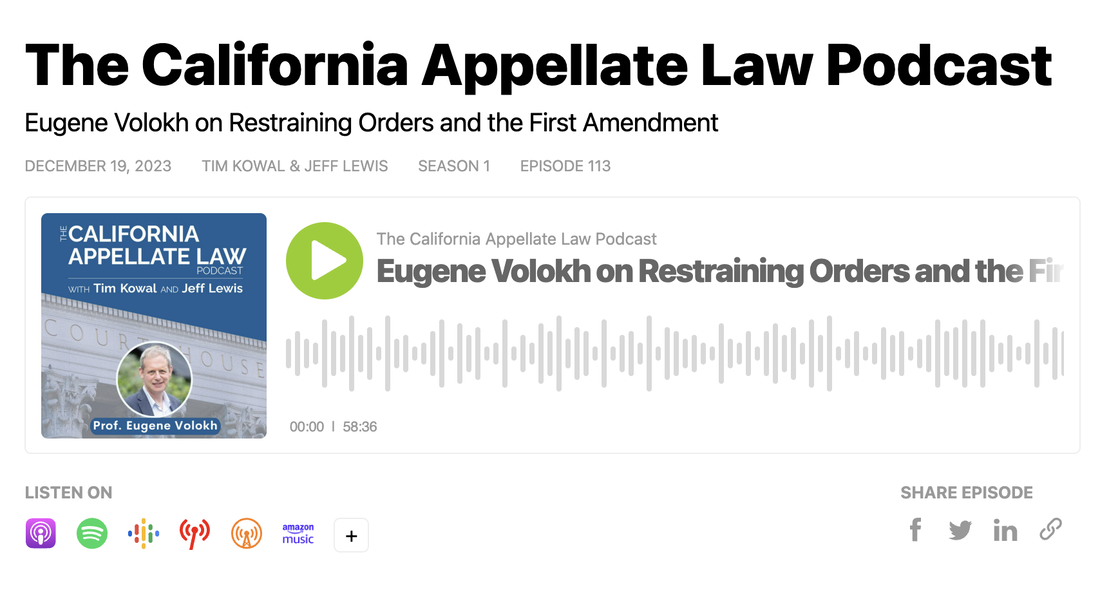
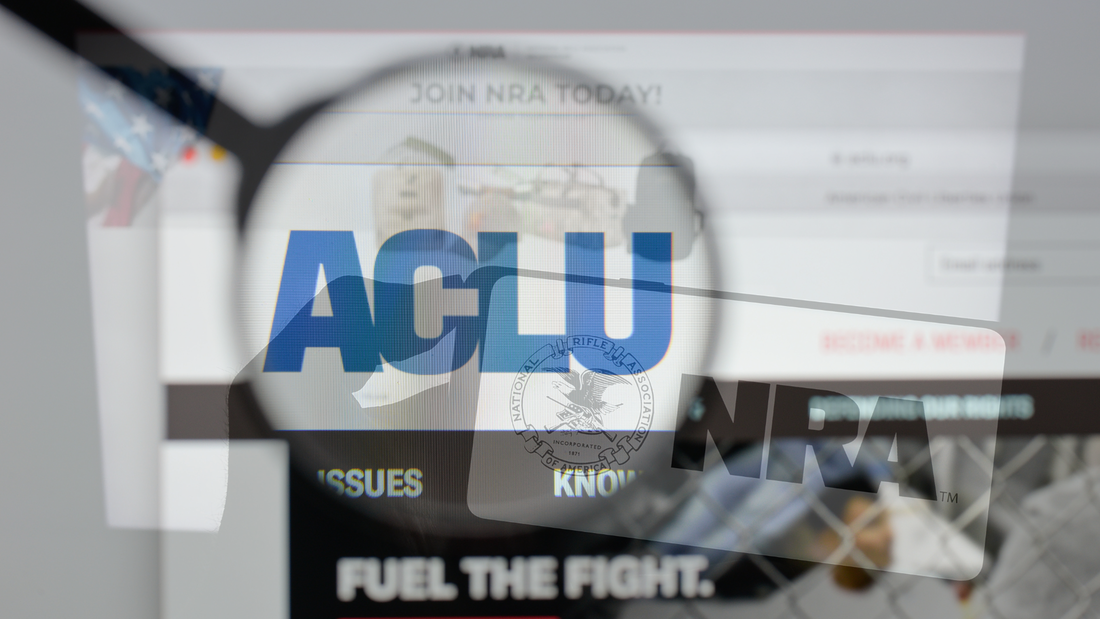
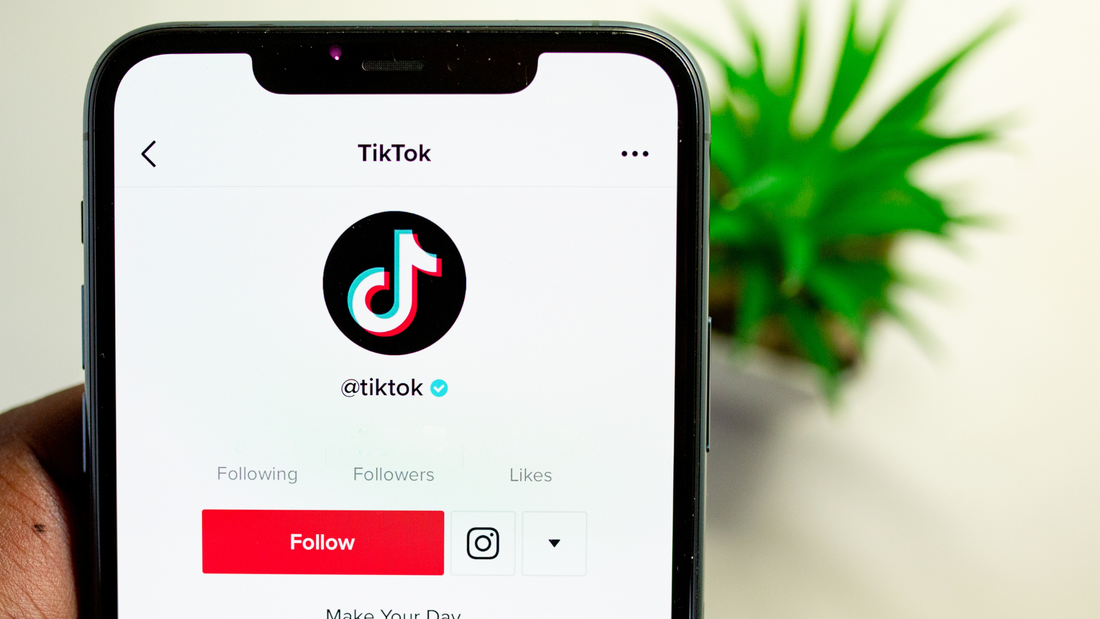


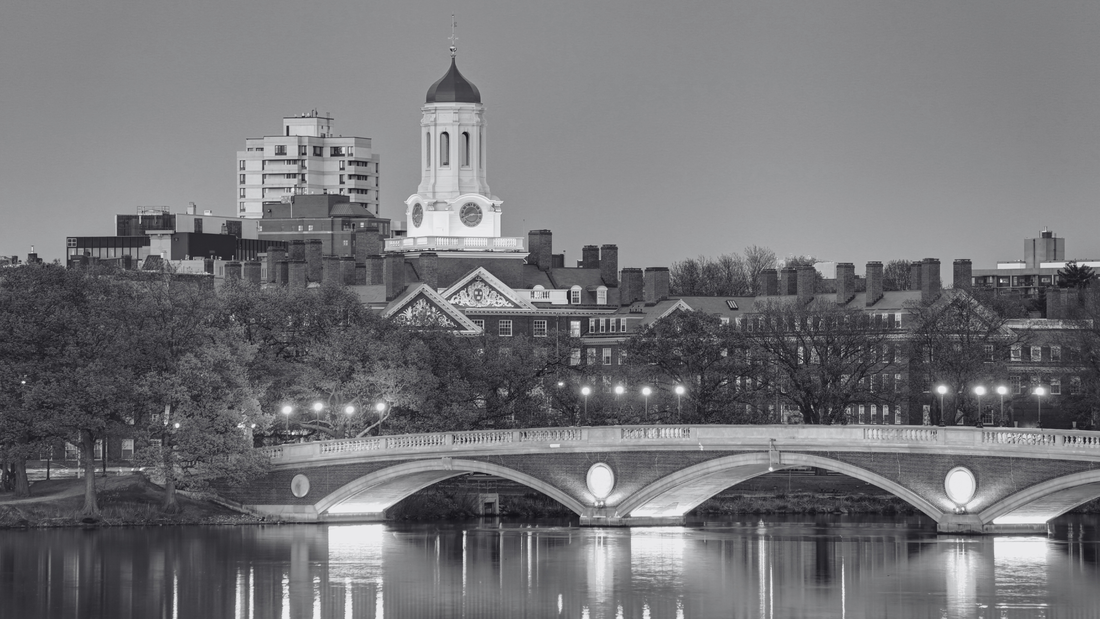

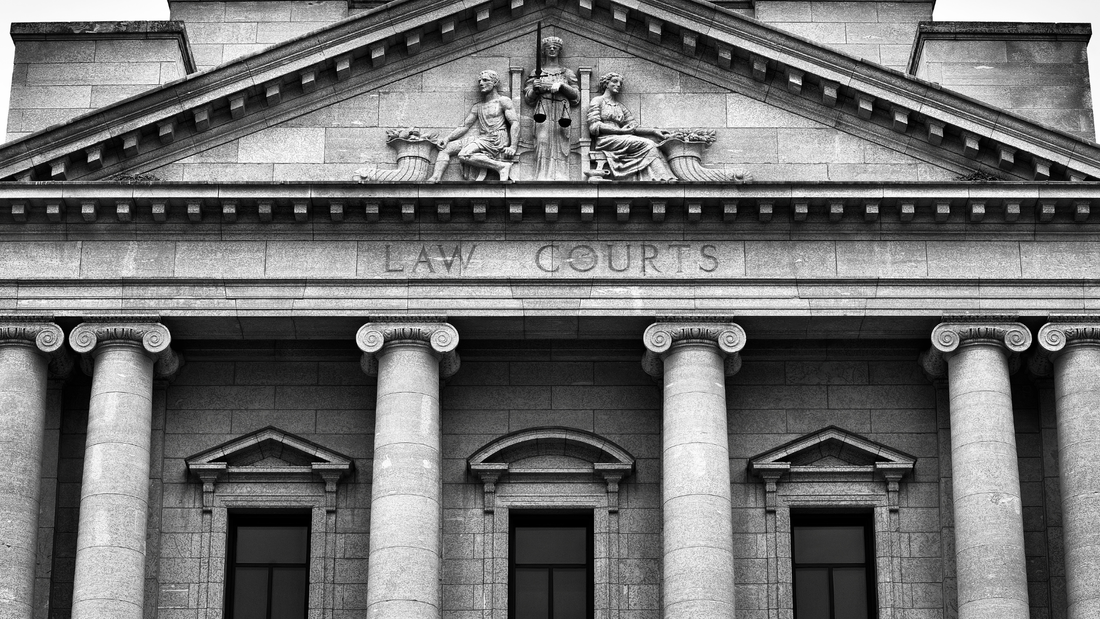


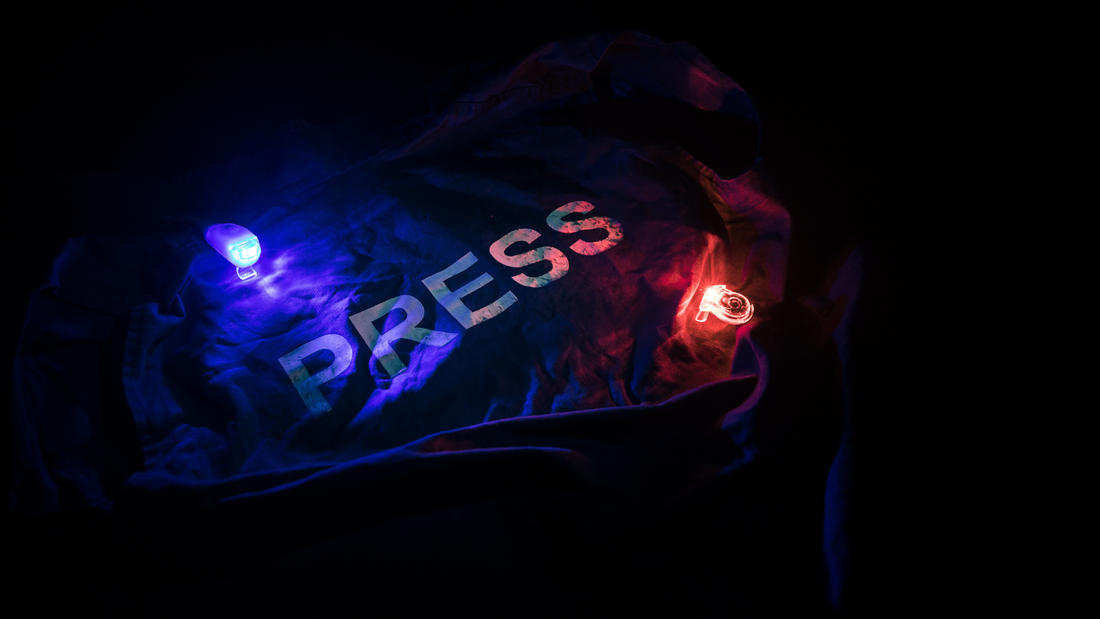
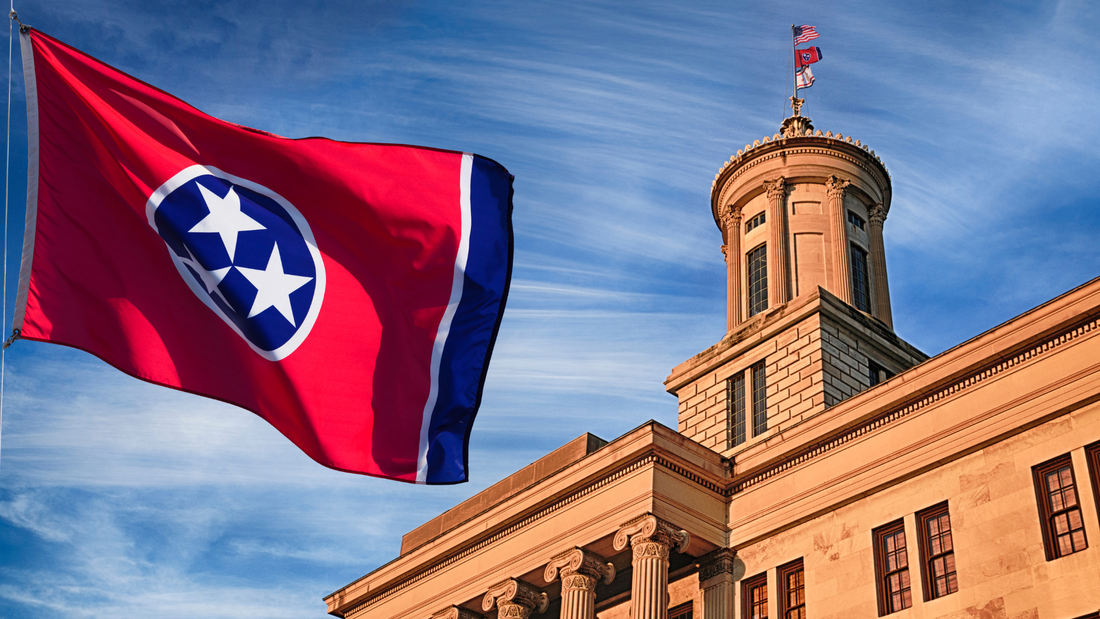

 RSS Feed
RSS Feed